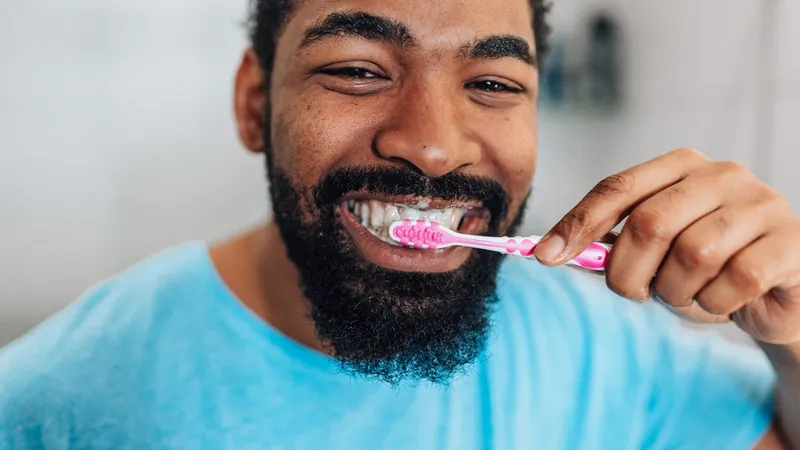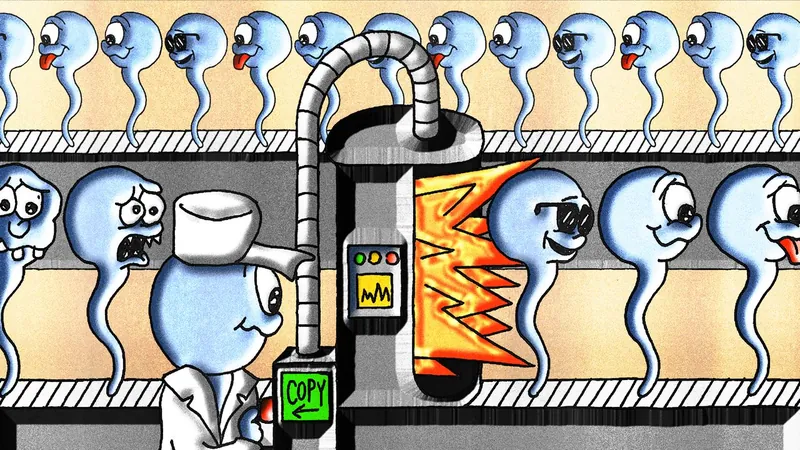
Is Nano-Hydroxyapatite the Future of Toothpaste? Dentists Share Insights
2025-09-22
Author: Rajesh
The Battle Over Fluoride Toothpaste
The debate over fluoride toothpaste is heating up, with many consumers considering a shift to alternatives like nano-hydroxyapatite (n-HAp). Dr. Pia Lieb, a cosmetic dentist and clinical professor emerita at NYU College of Dentistry, notes that this cleaner, fluoride-free ingredient is gaining traction in oral care products.
What Exactly is Nano-Hydroxyapatite?
Nano-hydroxyapatite is a synthetic compound resembling the natural mineral that makes up tooth enamel. "It's a form of calcium phosphate that can effectively integrate into demineralized areas of the teeth," says Dr. Ada Cooper from the American Dental Association. Dr. Royce Lai adds that while traditional hydroxyapatite has been in use for decades, the nano version is smaller and more efficient.
The Origins of n-HAp
Originally developed by NASA in the 1970s to combat bone loss in astronauts, nano-hydroxyapatite has been an integral component of oral care products in Japan since the early ‘90s. It’s admired for its ability to help not only protect teeth but also promote their healing.
Benefits of Nano-Hydroxyapatite Toothpaste
According to Dr. Catrise Austin, n-HAp not only protects but also rebuilds enamel. Benefits include: - **Enamel remineralization** - **Relief for tooth sensitivity** - **Reduction of bacterial adhesion** - **Enhanced whitening and gloss** Dr. Sandip Sachar points out that n-HAp can fill microscopic cracks and potentially halt the early stages of cavities. In research studies, n-HAp has proven itself comparable to fluoride toothpaste in preventing cavities.
Safety and Risks of Nano-Hydroxyapatite
Despite its benefits, concerns remain about the long-term safety of nano-hydroxyapatite, especially regarding absorption into the body. As Dr. Austin puts it, although no adverse effects have been reported, there are ongoing discussions about ingestion, particularly for children.
Is It Effective? The Experts Weigh In
Most dentists agree that nano-hydroxyapatite toothpaste can be effective, particularly for those seeking alternatives to fluoride due to sensitivity or personal preference. However, while it offers promising benefits, it does not replace traditional oral hygiene practices or regular dental check-ups.
Finding the Right Option for You
When considering a switch from fluoride to n-HAp, it’s essential to talk to your dentist. Dr. Eversgerd emphasizes that fluoride remains the best standard for cavity prevention, but for some, nano-hydroxyapatite is a valid alternative.
The Bottom Line
While the potential of nano-hydroxyapatite toothpaste is exciting, research is still developing. It may serve as an effective complement to traditional fluoride toothpaste, but it’s important to maintain overall dental hygiene practices. For personalized recommendations, consulting your dentist is crucial.


 Brasil (PT)
Brasil (PT)
 Canada (EN)
Canada (EN)
 Chile (ES)
Chile (ES)
 Česko (CS)
Česko (CS)
 대한민국 (KO)
대한민국 (KO)
 España (ES)
España (ES)
 France (FR)
France (FR)
 Hong Kong (EN)
Hong Kong (EN)
 Italia (IT)
Italia (IT)
 日本 (JA)
日本 (JA)
 Magyarország (HU)
Magyarország (HU)
 Norge (NO)
Norge (NO)
 Polska (PL)
Polska (PL)
 Schweiz (DE)
Schweiz (DE)
 Singapore (EN)
Singapore (EN)
 Sverige (SV)
Sverige (SV)
 Suomi (FI)
Suomi (FI)
 Türkiye (TR)
Türkiye (TR)
 الإمارات العربية المتحدة (AR)
الإمارات العربية المتحدة (AR)